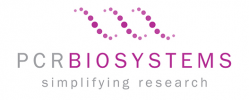© Pint of Science, 2025. All rights reserved.
We are all living longer lives but how do we improve our healthy life span and how does our health change from conception to our elder years?
In quest of the "perfect" sperm
Mr Daniel Marcu
(PhD Researcher at University of East Anglia)
Men ejaculate millions of sperm, but which one fertilises the egg? And are all sperm equally capable at siring offspring? This talk will explore the selective barriers sperm face until reaching the egg and it will also explore the consequences of such selection on the health of the offspring. Lastly, as more and more couples worldwide suffer from infertility, the talk will highlight the possible ways to improve the health of an ejaculate to ensure successful pregnancies and healthy babies.
Mama’s gut: Key to baby’s health
Dr Sally Dreger
(Senior Researcher at Quadram Institute)
The microbial communities (microbiota) that inhabit the gut play key roles in human development, and antibiotic usage can disturb the microbiota diversity. By creating a perturbed microbiota (dysbiosis) in lactating and/or neonate mice with antibiotics, angiogenesis (blood vessel development) was significantly impaired in these antibiotic-treated animals. Our findings suggest that dysbiosis in mothers impacts the developing vasculature of their offspring as we explore the maternal microbiome.
Exploring the hidden costs of extending “healthy lifespan”
Dr Elizabeth Duxbury
(Senior Postdoctoral Research Associate at University of East Anglia)
We are living longer lives- here in the UK, one in three children born today will live to 100 and the number of people aged over 85 is expected to double by 2050. But healthy lifespan (the number of years spent in good health) is not keeping pace, and the increasing number of years in later life spent in poor health is a global grand challenge. This talk will explain the strategies we use in the lab for extending healthy lifespan, and what consequences these interventions could have for fertility and the health of future generations of offspring.
Map data © OpenStreetMap contributors.
